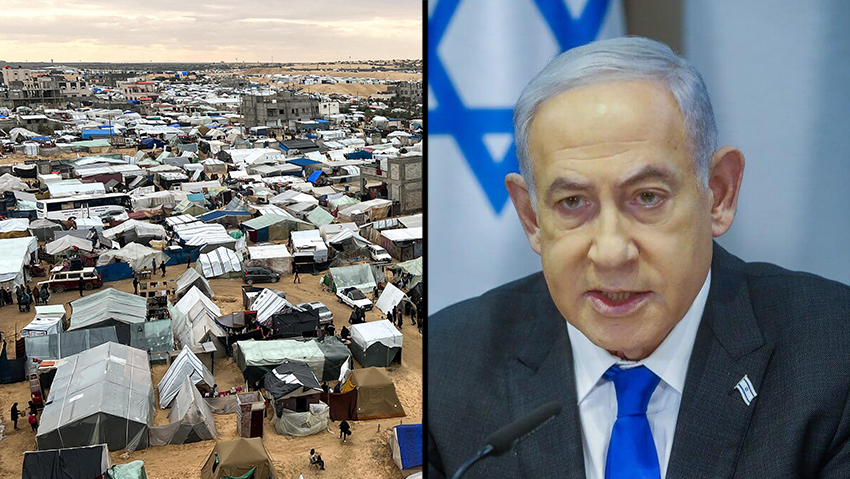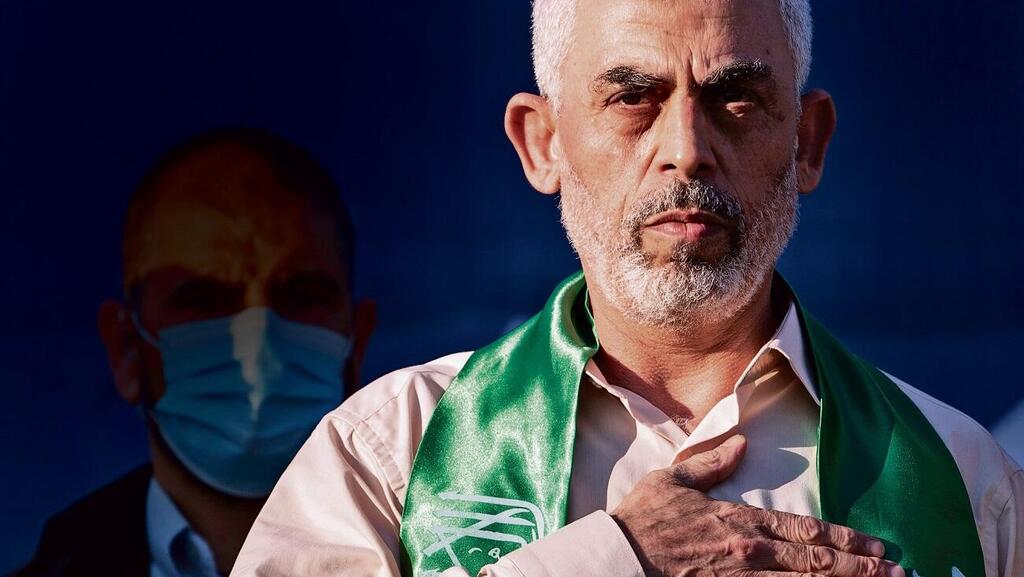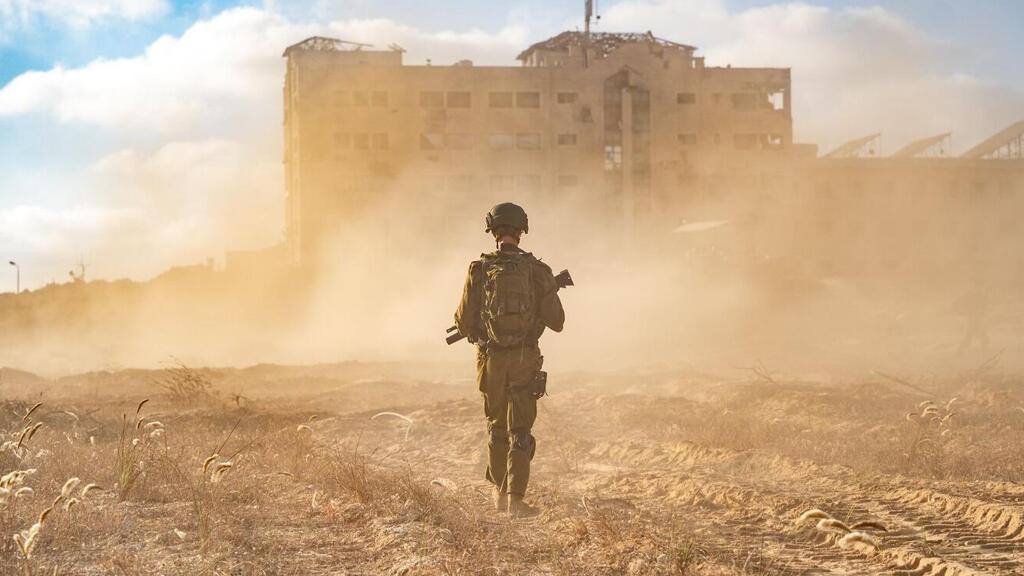Not a week passes where Prime Minister Benjamin Netanyahu isn't at the center of attention - but this week it was for the right reasons. Neither protests against the government nor U.S. President Joe Biden's criticism put him there - Netanyahu was in the spotlight this week because his camp placed him there.
At the crossroads we've reached, between an Egyptian-mediated hostage deal or an operation in Rafah, the national camp had no dilemma. This isn't because they don't care about the hostages, quite the opposite: the national camp feels Israel has given too much time and diplomatic opportunities, which tend toward concessions in the fight to return the hostages back home.
3 View gallery


Displaced encampments in Rafah, Benjamin Netanyahu
(Photo: Miriam Elster, REUTERS/Saleh Salem)
The thesis saying that further concessions and expanding the Israeli delegation’s mandate would bring the next deal closer is proving a resounding failure, while the national camp's approach proved correct in the first deal: military pressure and force are the only things that will work against the Nazi organization standing on our borders.
The current hostage deal proposal was led by the Egyptians, who, according to some reports, fear the quantity and quality of tunnels that will be exposed in the Rafah operation - some describe them as highway tunnels, which the Egyptians have turned a blind eye to in order to maintain peace with their Muslim brethren. At our expense, of course.
This deal, if implemented, will result in a low number of hostages returning - according to reports, between 20 and 35 - and most of the hostages will remain in captivity while Israel loses the assets it acquired thus far, such as control of the Netzarim Corridor. The national camp has no dilemma in this matter: we've wasted too much time while operating under the pressures of the Americans and Israeli elements who think igniting fires in Tel Aviv and shouting "now" will help in returning the hostages.
The national camp was patient: the right is the side that said it's right to wait with the operation in order to enter when ready, the right is the side that says there are diplomatic limitations that can’t be ignored, and the right has been unwillingly accepting the appeasing approach of managing negotiations for five months at this point.
But patience is running out, and the idea that Netanyahu will fold or delay the Rafah operation is incomprehensible. Therefore, the prime minister did well to clarify that he doesn’t intend to give up on Rafah - that's what his camp wants, and according to the polls, that's what the majority of the people want.
In the struggle for the judicial overhaul, the political right folded spectacularly - the left declared a civil war on one side, and the right had no desire for such a war. The right's responsibility is to swallow down its pride and put the state and the people above all.
But things are different against Hamas, Hezbollah, and Iran – they’re enemies, in every sense and definition. And here, if the Attorney General isn’t helping in achieving victory – she’s useless; if the defense minister doesn't control the appointments made by the IDF Chief of Staff - then Netanyahu needs to find a way to overrule them; if the staff of the negotiating delegation goes to the media to seek a mandate, and then fail - then they need to be replaced.
 Naveh DromiPhoto: Ilya Melnikov
Naveh DromiPhoto: Ilya MelnikovThe national camp and those who woke up on October 7 will support the leader who stands on the podium and says: "Unfortunately, the recent appointments made by the Chief of Staff are unworthy and insufficient for a life-seeking country. I’m known as a cautious leader, sometimes people in my camp criticize me for being too cautious. And I listen to that, I listen. And I’m going to get involved."
Naveh Dromi is an Israeli journalist and a Channel 14 panel member.




